Before we get down to Little Sis’ critiquing prowess: Over this last week, I picked up some additional writing assistants:

Baby Peregrine likes to do his work early in the morning. Very early in the morning.
Ollie cat sits on my manuscript for a while before getting back to me
In addition to my new companions, I also got a chance to interview Sis about her reading process. Sis has killer instincts and I would pay for her feedback, but since we’re blood relatives, she seems to be willing to help me out of love and the occasional babysitting session.
To give you an idea of how clueless I was, I actually remember asking this question before I started seriously writing for publication: I asked Sis if it was possible to really learn how to improve writing. Don’t you just have to write and improve with practice? Her answer was that you can definitely study the craft of writing and that her writing had noticeably improved from the work in her program.
Huh. Writing as craft versus art. A light bulb moment for me, just to show you how helpless I’d be without Sis, who is my Secret Writing Weapon #1.
Sis is the one who taught me how to critique, but I realized that I usually go through the process instinctively, just modeling myself after the sorts of comments I’ve gotten from her many a time. I’ve always been fascinated that she actually took a class in her MFA program where the professor taught them how to critique. In her words, they would turn in one page writeups and receive feedback on whether their critique was good enough. How cool is that?
This professor will henceforth be referred to by the nickname Winky (don’t ask) for anonymity’s sake. Professor Winky was intent on teaching writers how to read critically and to give feedback that was usable–or as we say in the corporate world: actionable. He also believed that learning how to critique and “read like a writer” was essential to, well, becoming a better writer.
I’ve often said that my sister gives me feedback that elevates the manuscript. She tells me what the manuscript can become rather than pinpointing minor bugs. It helps me take what’s there and make it better. Often her comments will help me turn a whole scene or a whole section on its tail for the better. The feedback is deep, on point, sometimes requiring major rework on my part–but amazingly keeps to my intent for the manuscript.
I often feel that feedback that’s doing bug fixes really can’t take me anywhere beyond the frame I’ve set up. My manuscript doesn’t get better, it just gets spit shined a little. But when my Little Sis is done, I know how to break it out of its mold and make it bigger and better. (This is what my editor does as well, which has led me to respect Little Sis even more)
Professor Winky had a system for developing strong critiquers and my sister left her MFA program with those secrets in hand. It turns out the system revolved around one key question that I think we often overlook when giving feedback:
What is the author trying to accomplish?
Without this one guiding question, feedback is often piecemeal, spurious, disjointed — LAZY. Professor Winky was out to eradicate lazy critique just as much as he was out to eradicate lazy writing.
We had to do this in interview form since Little Sis had a bouncing baby in her arms, so here it is. From the mouth of my secret weapon herself.
Jeannie: You talked about rules that Winky set out. What were they?
Little Sis: They were pretty basic. You had to answer the question “What is the author trying to do?” You then had to identify a couple of things the author did well to achieve that goal and then give a couple suggestions on what they could do to improve on that goal. Also you couldn’t use “you” at all or refer to the writer. It had to be “the writing” or “these pages” or “this paragraph in the manuscript”.
He never said don’t do line edits, but it was implicit because it wasn’t in the questions.
Jeannie: Tell me about the process Winky would use in his class.
Little Sis: Well, every week someone would be assigned to turn in their writing. Everyone else would read it and turn in a one page written critique with the questions above before the session. Winky would collect the papers so they couldn’t just read it out loud in class.
During the critique session, the author would listen to everyone’s comments and wasn’t allowed to speak so there was no explaining, “But I meant…”
After the class, Winky would read through the one page critiques and call you in during office hours to comment on what you did that was useful. But he would also point out things that weren’t useful.Like blanket comments like “What’s at stake?” That’s what lazy critiquers throw out when they have nothing else to say. It’s a dead comment to a writer because they’re left to guess what they’re supposed to change to address it. The critiquer should be able to describe why it’s important they know what’s at stake for that particular scene, why and where do they feel it’s lacking, and provide some suggestions for improving it.
Jeannie: Oh yeah, the one I hear all the time is “There’s not enough conflict in the scene.” Definitely a problem, but not very useful as a standalone comment.
Little Sis: Yes. What do you feel is missing that would contribute to the conflict? What sort of conflict needs to be there? What’s another one that Winky was really peeved about…Oh yeah, “Show, don’t tell.”
Jeannie: *snickers*
Little Sis: As a blanket statement, it doesn’t mean anything. We had a professor who sat us down and said you’ve all heard so much about “Show, don’t tell” that you’re afraid to write a sentence like “He was afraid” when sometimes, that works perfectly.
Jeannie: People have heard “show, don’t tell” so much that writers try to substitute some convoluted way of showing emotion that ends up being artificial and is STILL TELLING.
Little Sis: Rob (BIL) mentioned once how a group was doing a critique in a scene where a guy was changing a tire, but the group just got all caught up on the details around changing a tire and the discussion just veered off into that description instead of focusing on something that was helpful. I told him that the instructor should have stopped that thread. They didn’t ask themselves, “What is the author trying to accomplish?” Is he really trying to write a scene about the technical details of changing a tire? If not, then you can make a brief remark about how this detail threw you off, but the critique should focus around what the author was trying to do.
Jeannie: Can you describe your approach when you first get a manuscript to read?
Little Sis: I read it through once for first impressions. My second read through is when I give comments because I know where it’s going and what it’s trying to do.
Jeannie: Do you do any sort of assessment for the level of where the manuscript is at?
Little Sis: That’s what the first read is for. If the manuscript is almost there, the next read will be for line edits. You don’t want to fix and change things if it’s really close.
Jeannie: (As I must have totally misconstrued my meaning there) The most common issue is people say there’s so much that needs fixing, they don’t know what to say.
Little Sis: If the manuscript is really rough, I’d start with character and motivation.
Even if the plot is ridiculous, ignore it for now. Once the characters are fixed, then they will pull the plot along. So next you can start talking plot and themes and sub-themes. Then after that, maybe pacing. That’s if you get a manuscript that’s very elementary and need to break it down. If you have someone pretty good, then you’ll address all of these at once according to what they’re trying to accomplish.
Jeannie: Line edits would be the last, last thing you do?
Little Sis: Yeah, cause that means it’s all fixed. The chapters are going to remain where they are. It just has to go from good to sparkly.
Jeannie: Where would you fit conflict under that? Character or plot or both?
Little Sis: Character. Maybe the author is allowed one or two freebie plot points to twist the story. If there’s more than that, the reader feels yanked around. Most of the plot should be that the characters made these decisions.
Jeannie: What do you think is the biggest shortcoming when people are critiquing?
Little Sis: They concentrate on grammar. Many people don’t realize that revising is not changing words. If the story is not working, you may have to change everything, take away maybe everything except for the central idea.
Jeannie: People hang on to words. They’re very hard to come up with.
Little Sis: I know. But the words are not written in stone. Use the delete key. 🙂
Also this happens a lot: when you give people comments and they argue or try to explain, “No, no…you don’t get it. I’m trying to do this…” They think that if people understood the reasoning, then the critique is no longer needed.
They don’t understand that 90% of the time, I know what they’re trying to do. I’m not giving the feedback because I don’t get what they want to do. I get it, but the writing didn’t accomplish its intended purpose. There’s a small percentage of the time when I didn’t get their original purpose and have to reassess and give different feedback.
And I’ve also learned (for some writers) that if they don’t give me a complete manuscript, I just say, “That’s good. Keep going.” (To not stop them in their tracks)
Rob: What sort of person are you a good reader for? Because you’re not for everyone.
(I stay silent as I sense some possible friction here. BIL and Sis met in the same MFA program.)
Little Sis: The person who thinks writing is a craft and a skill like any other. That there’s no mystique or talent about it and you can get better. Not a sensitive person.
I prefer someone who’s strong enough in their writing ability that they won’t take it personally. Or strong enough to consider feedback and decide whether or not it does help them. Strong enough to decide that my suggestion might not work, but maybe they can take it in another direction that’s even better than the original suggestion.
Back to Jeannie:
I think the coolest thing is we have conversations like this one all the time. Isn’t she smart? But she’s my Little Sis. Mine! And you can’t have her. Please let her know what you thought of this seemingly simple process that puts the onus onto the reader.






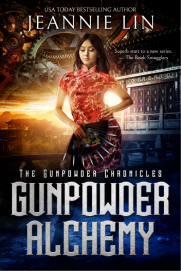
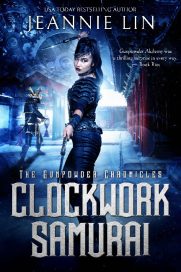
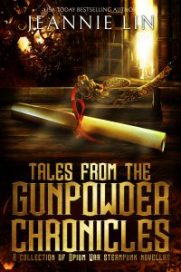
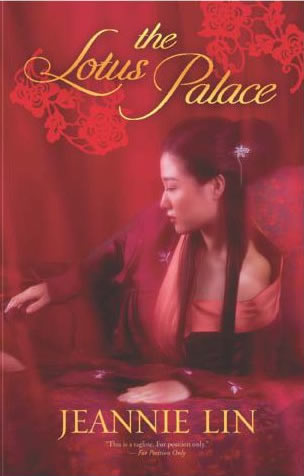

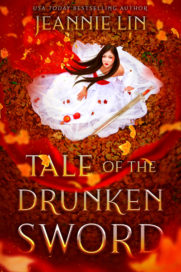
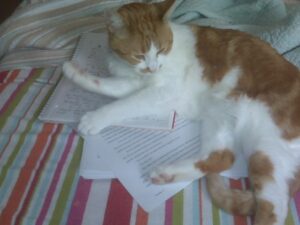


Mar 14, 2011 @ 06:15:15
Jeannie – it is very cool that you get to have conversations like this all the time.
I love being on a table with you at the critique group. Just listening to your process makes me a better writer and critiquer (I hope.)
I think your sister’s/Winky’s process focuses down to the meat of the story. And I love that her process is character driven.
Thanks for sharing.
Mar 14, 2011 @ 06:25:49
Thanks to Jeannie and Little Sis for sharing. This is a VERY timely post for me.
I agree that writing is a craft that can be learned, improved, and (hopefully) perfected. I see changes in both my own writing and that of my critique partner since we started reading craft books and taking workshops.
I’d love to read more of your sister’s tips in future blog posts.
Mar 14, 2011 @ 06:34:29
Lynn — I’ve learned a lot from CORE too. I was thrilled to find a lot of what Sis described was similar to what we do in CORE, other than getting feedback on your feedback.
Sarah – I’ll let Little Sis know! I think what’s really helped me is that I have someone not only to discuss writing with, but also to discuss process with.
Mar 14, 2011 @ 06:36:00
Fantastic post, Jeannie. Enjoyed the interview and received some very helpful points. Thanks to Little Sis and Rob. (I’m actually going to print this out so I can remember to concentrate on the basics first!) Great pictures:)
Mar 14, 2011 @ 07:18:22
Jeannie, I have often thought I wanted to steal your little sis from you…now I know I do. Sis, it’s nice to finally kinda-sorta ‘meet’ you after hearing Jeannie brag on you so often.
Jeannie’s sis, thank you for sharing a bit of your process. When I write, I think in terms of scene purpose and what I’m trying to accomplish as a writer. It’s very interesting to hear someone critting from the same perspective.
Thanks for sharing your crit process, and congrats on the baby. He’s adorable!.
Mar 14, 2011 @ 07:19:05
How come I got the “Oh, this is great!” little sisters? Other than that, mine aren’t much help in the writing sphere. You’d think they’d welcome the chance to jump on my head for a change. 😉
Thanks to you and your Little Sis, Jeannie. Great tips. While the small stuff (skewed details, items that magically appear, uncharacteristic behavior) usually pull me out of a story, those things tend to be symptomatic of a writer unsure of the story’s direction. Little Sis put a nice handle on a difficult problem.
PS Thanks for sharing the baby pics.
Mar 14, 2011 @ 07:41:30
“Most of the plot should be that the characters made these decisions.”
My favorite words in the whole article. I think I’ll stick them on a post-it. Critting is a skill, and you’ve given us some good thoughts on the subject.
You are lucky in your little sis, Jeannie.
Mar 14, 2011 @ 08:15:34
What a fabulous working relationship you have! You’re incredibly lucky, Jeannie!
I was in a creative writing program years ago that used the same technique–before workshop, people wrote one-page critiques, and then had a discussion in which the author was in a “cone of silence” until after the critique was done. It was incredibly focused and incredibly useful.
I love the way you describe your sister’s approach:”She tells me what the manuscript can become rather than pinpointing minor bugs.”
Mar 14, 2011 @ 08:33:06
Cute and cuddly writing assistant you’ve got there, Jeannie. And on the blog, um…y’know we’re sisters and all and so, I think Little Sis should be part of the extended family, right? And besides, I’ve had a lot of practice with babies, so I can pay as much as you. 🙂
Mar 14, 2011 @ 08:52:14
Thanks for the comments everyone! I’ll definitely tell Sis to take a look when she has a break between feedings.
Sis definitely knows what she’s good at critiquing too. She’s good for helping with creating a solid, core story. We both are weak at critting grammar and mechanics.
Mar 14, 2011 @ 09:23:11
Jeannie,
Thanks for sharing, I enjoyed the interview and gained some really good insights on critiquing.
Thanks to lil sis for sharing.
Charly
Mar 14, 2011 @ 09:40:06
I’m glad your Lil Sis helps you so much in your writing. As one of my mentors, that means you get to pass it on to me!
Mar 14, 2011 @ 09:56:08
Can I have a Lil Sis??? Awesome advice and a wonderful breakdown of critiquing. Thanks!!!
Mar 14, 2011 @ 10:38:21
No one can have my Little Sis! Well, except for our brother I suppose.
I really have learned a lot about writing and reading from her. She might be swayed by Diane’s offer to babysit. 🙂
Mar 14, 2011 @ 11:58:11
Great post, Jeannie! It’s wonderful that you have Little Sis who’s not only knowledgable, but who you trust to help you focus your story. I have amazing critique partners and I wouldn’t give them up for any amount of gold. Each of them brings something unique to the table, and I love them dearly.
Mar 14, 2011 @ 14:07:56
Starting a petition to steal Little Sis !!!!!!! LOL
You’re really lucky, Jeannie. Smart sis —smart critique partner you have there. This was a great interview.
If you won’t let us have her, at least convince her to be a regular guest who will impart her wisdom! Please?
Happy writing! 🙂
Oh, adorable baby too!
Mar 14, 2011 @ 17:11:34
Jeannie, thanks for bringing your sister along to this post. Lots of good information. Why can’t my sister give me good information? Thank goodness I have fabulous critique partners who seem to have your sister’s view of critiquing. It’s great when the questions get you headed in a better direction.
Mar 14, 2011 @ 17:24:09
Perry is adorable, isn’t he? — I complained though that he was smiling a moment before I took that picture. I tried three times and every time he’d giggle and then stop the moment I took the picture. harumph
Kate, I lucked out with the DNA bond, but I’ve also developed relationships with critique partners who can delve deep into a manuscript like that. It’s a blessing to have such good readers and it sometimes takes quite a while to find them!
Mar 14, 2011 @ 18:39:26
I think the “what is the author trying to accomplish with this scene?” question will help with my own writing. Thanks for posting this.
Mar 14, 2011 @ 20:34:08
Chris – I found that learning how to critique better really did help me think about my own writing. My manuscripts aren’t necessarily cleaner on first pass, but I think they’re definitely richer because I can see Little Sis’ comments making me go deeper.
Mar 14, 2011 @ 21:49:31
Little Sis makes terrific points. It’s so hard to get the big picture (what is the author trying to do?). I love the advice to concentrate on character first. Glad Mr. Winky says don’t argue/explain–a writer won’t learn that way. 🙂
Mar 15, 2011 @ 11:51:50
Loved this! I think this is great info to apply when I’m critiquing those in my crit group. I know some in our group really latch onto the grammar critique and not the overall picture. I may just have to print this off and pass it out at our next session 🙂
Mar 15, 2011 @ 15:16:27
Dara – Tee hee…as a “gentle” reminder.
It’s good to have grammar police looking things over too, but I know I’m not ready for that until the very, very final pass of a manuscript. It’s a shame because as authors if they’re getting caught up in grammar, they may not be learning as much out of the process as they could. Critique develops writerly skills for the reader as much as the author.
Mar 15, 2011 @ 15:22:41
Megan – Winky would have approved of CORE. 🙂